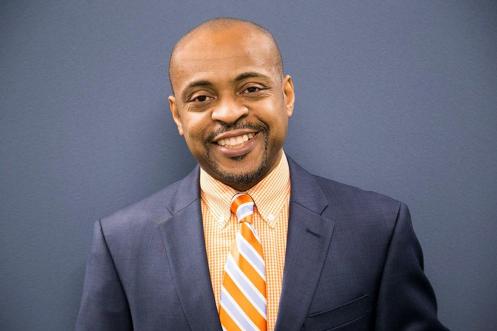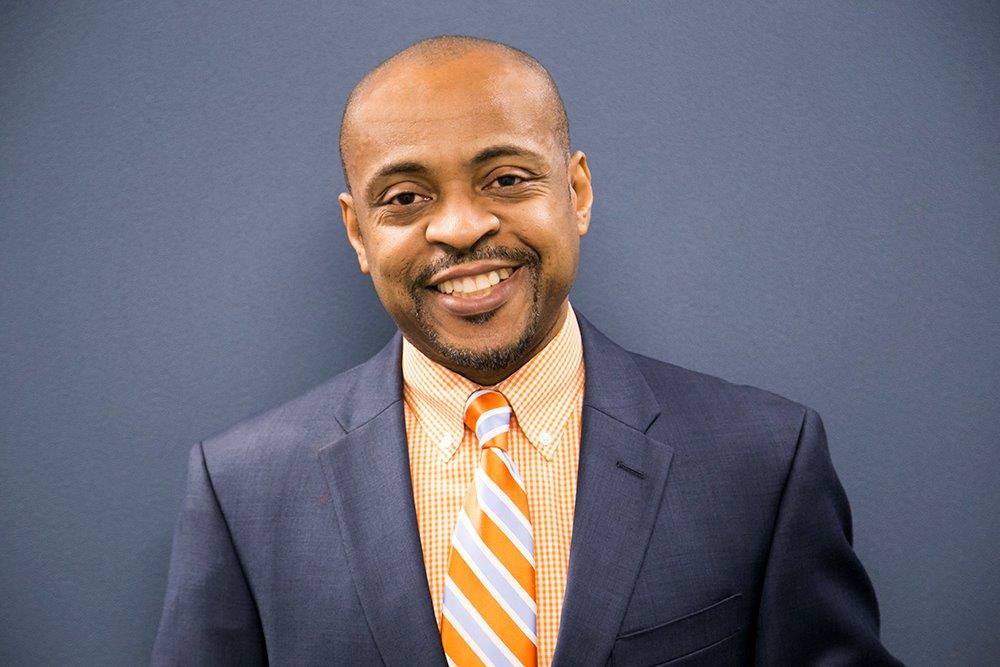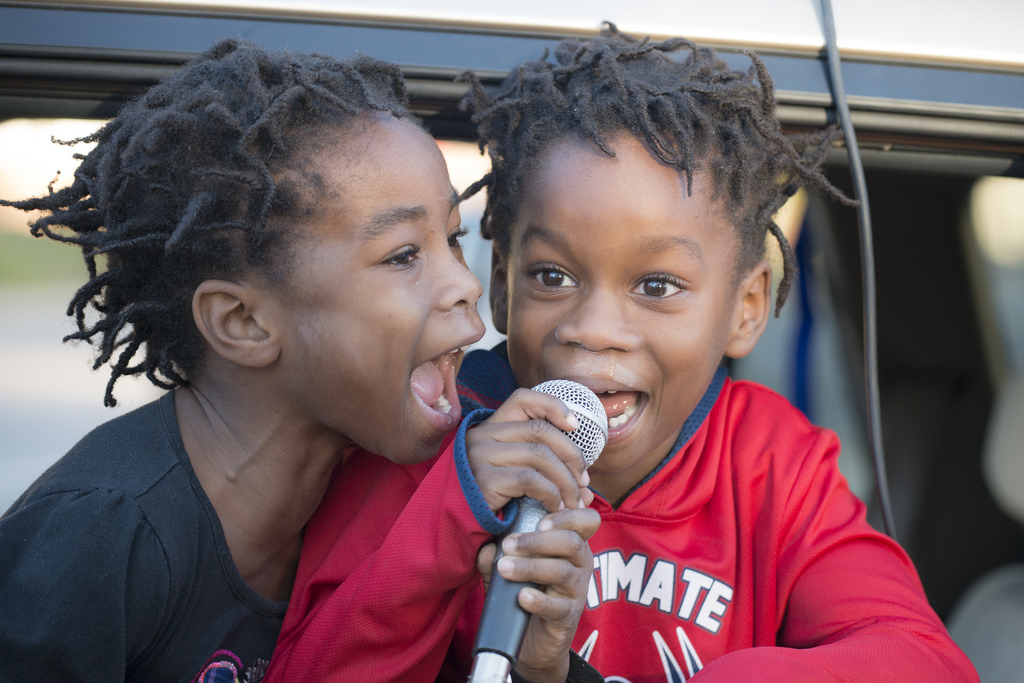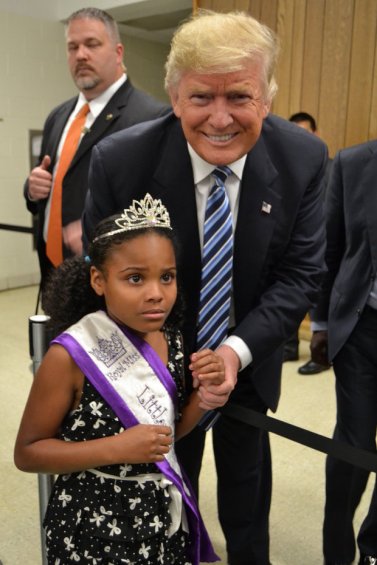I met Reggie Shuford as an intern at the National Legal Department of the American Civil Liberties Union when I was 23 years old. At the time, he was the Senior Staff Counsel in the Racial Justice Program, and I was a summer intern. Prior to taking the job, I courted another offer from the National Legal Department of the NAACP. It was a hard decision but I chose the ACLU because of their broad base of representation. At the time, they were evaluating Patriot Act challenges and just gaining momentum in the fight for marriage equality. I wanted to be part of that think tank, no matter how small.
I had the privilege of being paired with Reggie as my mentor. What struck me about Reggie was his depth and thoughtfulness. You could have a discussion with Reggie and see his wheels turning. Like most great legal minds, he had the ability to dissect an argument from all angles and reach conclusions based in knowledge and compassion. During my time, I learned a great deal from Reggie. Most importantly, I learned the significance of calculated actions and reactions.
As protestors evacuate Standing Rock, Attorney General Jeff Sessions overturns the phasing out of private prisons and Trump orders mass deportation of undocumented immigrants, I knew there was no one better to help dissect our role in this changing society than Reggie Shuford, the Executive Director of the ACLU in Pennsylvania.

Q. Tell us a little about yourself. Where are you from? Where do you currently reside?
I was born and raised in Wilmington, NC. I currently reside in Philadelphia, PA. Before moving to Philadelphia in August 2011, I lived in Oakland, CA, Brooklyn, NY, and in Chapel Hill and Raleigh, NC where I attended college [and] law school.
Q. Have you always known you wanted to devote your career to social justice? Was there an impetus in your life that propelled you in that direction?
I decided I would become a lawyer around age six. I was an inquisitive child. Whenever we received visitors at home, I would ask them lots of questions about themselves – their likes and dislikes, hobbies, favorite color, books, relationships with relatives, etc. More than one suggested that I sounded like a lawyer. It dawned on me that, if one could ask questions for a living, then I would do that. Of course, asking questions is just one part of being a lawyer! Representing clients and advocating on their behalf is another. I also grew up in a very poor, racially segregated environment. Although I did not know it at the time, Wilmington, NC, had been home to a race riot in 1898. That legacy persisted, even if it was unspoken. It also impacted one’s opportunities, or lack thereof. Given the social, economic and racial disparities I observed growing up, I decided I would commit myself [and] my legal career to one of social justice, with Thurgood Marshall as my primary inspiration.
Q. What has been your greatest victory?
Surviving a childhood of poverty and limited opportunity with my spirit and dreams intact and having been able to achieve many of my personal and professional goals, which involve advocating on behalf of the marginalized or mistreated.
“I… grew up in a very poor, racially segregated environment. Although I did not know it at the time, Wilmington, NC, had been home to a race riot in 1898. That legacy persisted, even if it was unspoken. It also impacted one’s opportunities, or lack thereof. Given the social, economic and racial disparities I observed growing up, I decided I would commit myself and my legal career to one of social justice, with Thurgood Marshall as my primary inspiration.”
Q. What has been your most difficult defeat?
I have felt defeated whenever I have represented clients, particularly in race discrimination cases, and not been able to achieve the outcome they deserved. That said, I try not to let any one defeat define me and, on balance, I think I have had far more victories than defeats.
Q. What motivates you to keep going?
Need. Martin Luther King, Jr., once said, “The arc of the moral universe is long, but it bends towards justice.” I see my job as a civil rights lawyer to help bend the arc towards justice. Until America becomes a truly equal and just country, for ALL of its residents, I will continue to do what I do.
Q. Aside from the legal profession, what profession/professions do you feel best serve issues of social and political injustice?
I think so many professions play a role in advancing social justice. The political system, when it is functioning well, plays an important role. The media, when it performs its role as an objective arbiter of facts, is also crucial. Teachers are critical in teaching us the skills and bestowing upon us the knowledge we need to be informed, productive, civically engaged citizens. Non-profit organizations often fill the gap in services between government and for-profit corporations. And so many more! Really, no matter what we do for a living, I believe we all have a responsibility to ensure our country lives up to its founding ideals.
Q. In today’s climate, it is easy to feel powerless in the face of injustice. Especially if you lack a legal education or formal means to fight injustice. How do you suggest the average person participates in effectuating change?
The first thing we should do is know our history. Think back to the Civil Rights Movement and before, where many activists did not have a legal education. Most activists still don’t. A legal education is just one of many tools to combat injustice. We all need to recognize what tools we do have – a voice, a network, a job, a car, an idea, a blog, an email account, a bank account, legs, the Constitution, the Bill of Rights, the ability to sing, dance, draw or make art, the right to vote. Those are just a few of the tools most of us have at our disposal to use to fight injustice. Many of us have a lot more.
Q. Rallying and protesting are often depicted as a dangerous way to participate politically. Protestors are categorized as rioters and police often resort to violent means of subduing discourse. In your experience, is protesting appropriate for children? As parents, how do you suggest we teach our children to be socially and politically engaged?
I love a good protest and have been heartened by all of those I have seen in recent months, reinvigorated in part by Black Lives Matter, to send a message about the importance of equality, justice and human rights. In fact, the organization where I work, the ACLU, was founded in 1920 in the wake of the so-called Palmer Raids, when the federal government, fearing the rise of communism, began detaining and deporting alleged radical leftists. The very earliest strategy recognized the importance of protests: “Rights can be maintained only by insisting upon them — by organization, protest, demonstrations, test cases in the courts, and publicity.” Whether a protest is appropriate for children will depend on the nature of the protest. While most protests are probably appropriate for children, parents should use their best judgment to make sure that is the case. Likewise, parents can lead by example in terms of teaching children to be socially and politically engaged. I think it’s both a responsibility and a gift to do so.
“A legal education is just one of many tools to combat injustice. We all need to recognize what tools we do have – a voice, a network, a job, a car, an idea, a blog, an email account, a bank account, legs, the Constitution, the Bill of Rights, the ability to sing, dance, draw or make art, the right to vote. Those are just a few of the tools most of us have at our disposal to use to fight injustice. Many of us have a lot more.”
Q. Since Donald Trump took office in January, he has signed a number of executive orders that have had a direct impact on the national and international community. First, what impact does an executive order have? Can our system of checks and balances prevent presidential overreach? As a community, which of his orders do you think we should be paying the most attention to?
The authority of a president to issue an executive order derives either from the Constitution or statutory enactment by Congress. In order to be legal, an executive order must not exceed a president’s authority and must comport with the Constitution or statute. The judicial branch can review an executive order to determine its legality. So, for example, the executive order issued by Donald Trump related to immigration – what some have deemed a ban on Muslims – was put on hold by a few federal judges and struck down by a judge in Washington state, which was ultimately upheld by the Ninth Circuit Court of Appeals. Trump has said he will not appeal the court’s decision and plans to issue another order. We will look to see what the new one involves once it is issued. In terms of which other executive orders to pay attention to, I think all of them. There is reason to be concerned about the impact of existing or potential executive orders on many people – federal government workers and contractors, members of the LGBT community, women and their right to make decisions about their bodies and families, those who engage in dissent, communities that have had a fraught relationship with the police, and so forth.
Q. There is a current vacancy on the Supreme Court as the result of the sudden death of Justice Anton Scalia in February 2016. President Trump recently nominated Hon. Neil Gorsuch, a federal appellate judge from Colorado, who has been likened to Scalia. Gorsuch’s confirmation seems like an inevitability. Are you concerned about Gorsuch changing the current court? How likely is it that the new court will reverse prior decisions that seemed to be settled law? Can the average person impact the decisions of the court?
If Judge Gorsuch models his career on Scalia’s, I do believe there is cause for concern, both in terms of future cases and for certain decisions that are considered fairly settled law, like Roe v. Wade. Reversing prior decisions does not happen often, but it does and can happen. Generally speaking, Justice Scalia was no friend to women and minorities, and was opposed to abortion and affirmative action and supported the death penalty. The primary way for people to impact a Supreme Court nomination is to vote for presidents and representatives who reflect their values. Once the president nominates someone, the Senate will ultimately vote on that person.
Q. Comedian Steve Harvey met with President Trump and received a great deal of criticism. He explained he felt as though “we” needed a seat at the table. In your opinion, is there room for cooperation with the current administration?
It depends on the agenda and/or specific policy proposal. Is the goal of the meeting sincerely to help people? If so, cooperation may be possible. Or is the goal to harm, marginalize, or stereotype certain people? Or is it self-serving, to provide an appearance of interest and concern, with the true, unstated goal of deflecting criticism? Also, who is being offered a seat at the table? Friends and those who agree with Trump or those with subject matter expertise or someone who might offer a perspective different than his?
“Whether or not a child – or anyone, for that matter – engages in civic unrest, everyone should know their rights when attending a protest or interacting with the police. There is a right way to do things and a wrong way.”
Q. Many of our readers have children who are tweens or teens with some autonomy and they may be eager to participate in the civil unrest. This can be particularly concerning for parents in our community because our children are often targeted and profiled by police. What advice would you recommend a parent give a child eager to get involved?
Parents have to make these calls for themselves, knowing their children, the current political environment in which we live, and the long history of police brutality in our country. They should also be mindful of anarchists who attend protests specifically to cause disruption and commotion. Their activity often puts peaceful protestors in a bad light, when they are unfairly painted with a broad brush, and can lead to violence. Whether or not a child – or anyone, for that matter – engages in civic unrest, everyone should know their rights when attending a protest or interacting with the police. There is a right way to do things and a wrong way. Visit your local ACLU website for relevant and helpful know-your-rights information!
Q. Any final words of wisdom/advice?
Know your value and never settle for less than you deserve. Dream big and follow your dreams until you achieve them! Be nice! Others tend to remember how you made them feel, more than they remember your job title or how much money you earn.
***
About The Author
Faye McCray is an attorney by day and writer all the time. Her work has been featured on My Brown Baby, AfroPunk, AfroNews, For Harriet, Madame Noire, Black Girl Nerds, Black and Married with Kids, and other popular publications. Faye is also the author of I am loved! Positive Affirmations For Our Children available in paperback and on Kindle here. Most importantly, Faye is a proud wife and mother to three beautiful and talented young boys who she is fiercely passionate about raising. You can find Faye on Twitter @fayewrites and on the web at fayemccray.com.
attorney by day and writer all the time. Her work has been featured on My Brown Baby, AfroPunk, AfroNews, For Harriet, Madame Noire, Black Girl Nerds, Black and Married with Kids, and other popular publications. Faye is also the author of I am loved! Positive Affirmations For Our Children available in paperback and on Kindle here. Most importantly, Faye is a proud wife and mother to three beautiful and talented young boys who she is fiercely passionate about raising. You can find Faye on Twitter @fayewrites and on the web at fayemccray.com.




 attorney by day and writer all the time. Her work has been featured on
attorney by day and writer all the time. Her work has been featured on 

 rried father of three amazing sons. He is also a proud graduate of Duke University where he holds a BA in History and African/African American History, and Howard University School of Law. He is also a regular commentator on the
rried father of three amazing sons. He is also a proud graduate of Duke University where he holds a BA in History and African/African American History, and Howard University School of Law. He is also a regular commentator on the 


